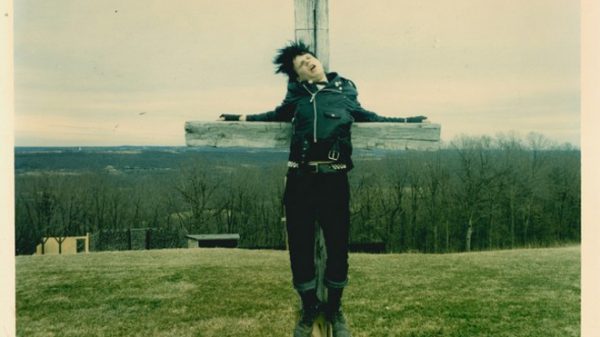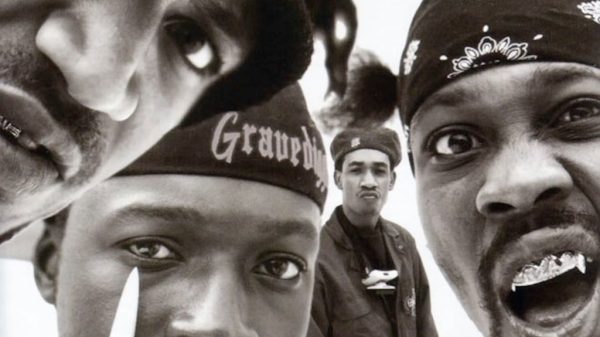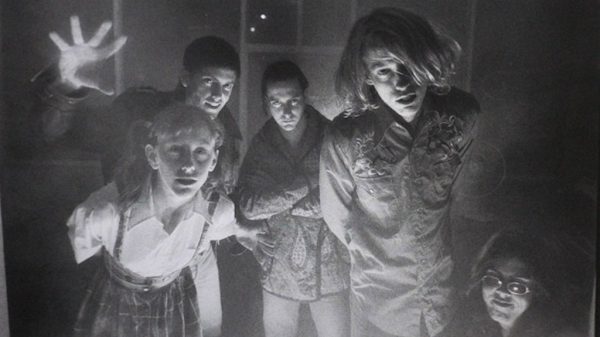As the new incarnation of ritual-noisic project Cultus Sabbati (less one member), HK8 makes good on the commitment of its remaining members to provide their listeners with aural snapshots of an evolving spiritual journey.
Debut album Jihad is ritual music with the desert at its heart: heaving, caustic drones slowly drift like desolate seas of sand beneath a relentless sun to bury the listener under its pervasive auditory assault. While the scorched textures are reminiscent of Skullflower’s elemental, guitar-based conjurations on Orange Canyon Mind, HK8 employs a diverse sonic palette – exotic instruments and samples, hissing, distorted vocals, and old school synths punctuated by glitchy, hypnotic percussion evoke a surreal, cinematic montage of Middle Eastern culture. Song titles frame the work in a mystic context, drawing on those elements of Sufism which describe a practitioner’s spiritual pilgrimage towards enlightenment (and, loosely translated, this is the type of struggle that the word “jihad” connotes; although political associations may be inferred as well, via “Sleeper Cell” and “Death of the Qutub”.)

If anything imbues the album with occult tendencies it is its use of effects, mainly distortion and reverb, coupled with understated, dubby beats. Following the dark psychedelic example of Menace Ruine, HK8 transmutes old Casio synth sounds into snarling, fuzzed-out drones that echo for miles, while the spirit of Skinny Puppy, circa 1986’s Mind: The Perpetual Intercourse, is invoked through Ogre-esque squelches of wretched vocal distress, and the ubiquity of low-viscosity rhythms that hint of Muslimgauze make a potent source of fuel for Jihad‘s dark rites; the combined impression is of an ominous, tense undercurrent that seeps like crude oil beneath and between the more obvious strata of sound.*
Sound, like sand, is an incursive agent – it burrows into the head of the listener to penetrate sensory awareness – and, just as individual particles of sand can eventually blast smooth the face of an ancient statue, so the smallest fragments of sound, persistently applied during a sufficiently meditative state, can erode the edifice of ego. While this may allow one to comprehend the timeless immensity of the desert, no one can truly grasp its totality; ritual music thereby transforms both the practitioner and the listener through a shared experience that belongs to neither. With Jihad, HK8 exemplifies this paradox by the constant unfolding of whirling sounds that nevertheless seem to hang, suspended in space and time, like a mirage on the horizon.
*(Incidentally, for those curious to read an occult interpretation of oil and its role in the Middle East, please see Reza Negarestani’s Cyclonopedia: Complicity of Anonymous Materials.)














